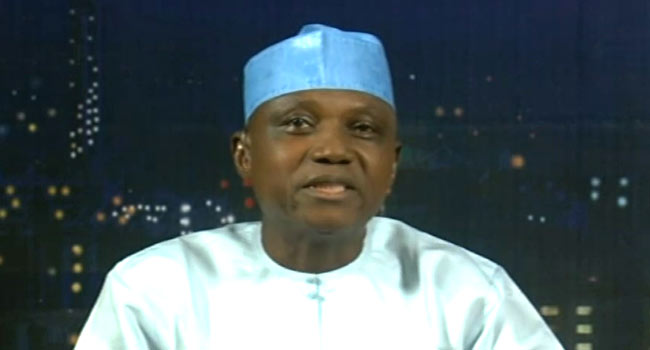Garba Shehu Refutes Jonathan’s claim that Boko Haram Nominated Buhari as negotiator
Former presidential spokesperson Garba Shehu has dismissed ex-President Goodluck Jonathan’s claim that Boko Haram once nominated former President Muhammadu Buhari to negotiate with the Federal Government on its behalf.
Jonathan made the assertion on Friday at the public presentation of Scars: Nigeria’s Journey and the Boko Haram Conundrum, a book authored by former Chief of Defence Staff, General Lucky Irabor (retd.), in Abuja.
According to Jonathan, during his administration’s efforts to engage Boko Haram in peace talks, the insurgent group nominated Buhari to lead negotiations on their behalf.
“I felt that if they nominated Buhari to represent them and have discussions with the government, then when Buhari took over, it could have been an easy way to negotiate with them and they would have handed over their guns. But it was still there till today,” Jonathan said.
He added that his government had established several committees to initiate dialogue with the sect, but that the insurgency persisted, pointing to the complexity of the conflict.
“I thought that after I left, within a reasonable time, General Buhari would wipe them out. But even today, Boko Haram is still there. The issue of Boko Haram is far more complex than it is often presented,” he added.
Jonathan also described the 2014 abduction of the Chibok schoolgirls as “a scar I will die with.” He maintained that his administration pursued multiple strategies to end the insurgency but said external factors and the militants’ access to sophisticated weapons hampered progress. He urged the current government to adopt a carrot-and-stick approach in tackling the crisis.
In response, Garba Shehu, who served as Senior Special Assistant on Media and Publicity to President Buhari, rejected Jonathan’s version of events as “false” and “politically motivated.”
In a statement posted on X (formerly Twitter) on Friday, Shehu wrote: “Boko Haram did not nominate Buhari as their mediator. To be president in 2027, Goodluck Jonathan should look for another story to tell Nigerians.”
He argued that the claim was aimed at reshaping public perception ahead of a potential political comeback by Jonathan.
Shehu also pointed out that Boko Haram’s leaders—Muhammed Yusuf and Abubakar Shekau—were ideologically opposed to Buhari, often denouncing and threatening him in their broadcasts.
“In fact, Shekau routinely denounced and threatened Buhari, and their ideologies were in direct opposition,” he said, recalling that Buhari narrowly escaped a bomb attack in Kaduna in 2014 during his presidential campaign.
Shehu maintained that reports linking Buhari to Boko Haram in 2012 were politically motivated. He cited a public denial issued at the time by Buhari and his party, the Congress for Progressive Change (CPC), refuting claims that he was nominated by the group.
He referenced a statement from CPC National Secretary, Buba Galadima, who confirmed that Buhari was unaware of any such nomination. The party’s late National Publicity Secretary, Rotimi Fashakin, had also dismissed the claim as an attempt by the then-PDP-led government to distract from issues of corruption.
Fashakin had gone further to allege that there were “three variants of Boko Haram”: the original insurgent group, criminal elements, and a political faction, which he accused the PDP government of representing.
Shehu concluded that Buhari’s administration made the fight against Boko Haram a central priority and that associating him with the group was an attempt to rewrite history.




